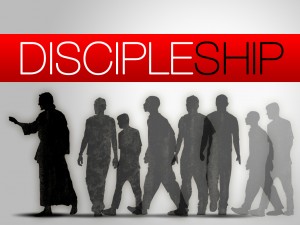 On Sunday we talked about how Christianity became a global movement, not through elite preachers but through men and women making disciples of men and women. This multiplying growth of the gospel was more effective for two reasons: 1) They shared life and the gospel. 2) They grew by multiplication not addition (adding people to a service). We looked closer at Paul’s approach to discipling, noting that he assumed the role of brother and father in his discipleship relationships.
On Sunday we talked about how Christianity became a global movement, not through elite preachers but through men and women making disciples of men and women. This multiplying growth of the gospel was more effective for two reasons: 1) They shared life and the gospel. 2) They grew by multiplication not addition (adding people to a service). We looked closer at Paul’s approach to discipling, noting that he assumed the role of brother and father in his discipleship relationships.
2 Discipleship Relationships
Brotherly discipleship happens among peers; fatherly discipleship happens with a mentor. Austin City Life does a pretty good job of brotherly discipleship through Fight Clubs, but needs to grow in fatherly discipleship where we mentor others who are younger in the faith or disciple people into Jesus for the first time. I challenged our church to recover the waning gospel movement that has shifted away from America by joining the historic movement of disciple-making right here, right now in Austin.
For some of you, your first step will be to just connect with our church community more, by visiting a City Group. Others will be looking for a “mentor” right away. Let’s all consider, not only how we can connect or be mentored, but more importantly who we can disciple. Pick just one person to disciple this year–a friend, neighbor, co-worker, person in your City Group, Fight Club or someone in our broader church community. As you consider who God is calling you to disciple, here are a few things to keep in mind
Practical Things to Keep in Mind
- PRAY that God would lead you to someone, preparing both of you for a father-son or mother-daughter relationship. Ask God to awaken faith in non-Christians around you.
- CONSIDER who would be a good fit. Don’t just pray, think. Dont rely on personality magnetism alone; different people can teach us a lot.
- ASK take initiative by asking someone to mentor you. It is important for Christians to take initiative with people they would like to be mentored by. Invite a potential mentor out for coffee or over for lunch and talk about what you are looking for. Establish some basic expectations: What sharing life might look like, Things to Discuss, When you can meet (get it on the calendar).
- START making disciples right away. Move forward with intentionality in your relationships, moving people closer and deeper into Christ. Be the kind of person that chases others’ joy, challenges them to be better people, and encourages them.
- REMEMBER you are not entitled to a mentor but you are called to make disciples. Don’t wait until you find a mentor to begin discipling others. In one season of life, my wife asked three women to be her mentor and all three turned her down. Man, they missed out! Ask God to give you the privilege of seeing people “take their first breath” and grow, mature in Christ.
Make disciples and join the movement. You won’t regret it. Its the best thing you can do with your life!
Helpful Resources on Discipleship
- Connecting – a very helpful practical book on three types of mentors: Spiritual Guide, Coach, Discipler.
- Master Plan of Discipleship – out of print and a follow up to Coleman’s classic, The Master Plan of Evangelism, which is also very helpful
- Untamed: reactivating missional discipleship – theology, cultural reflection, and practicals on incarnational discipleship

